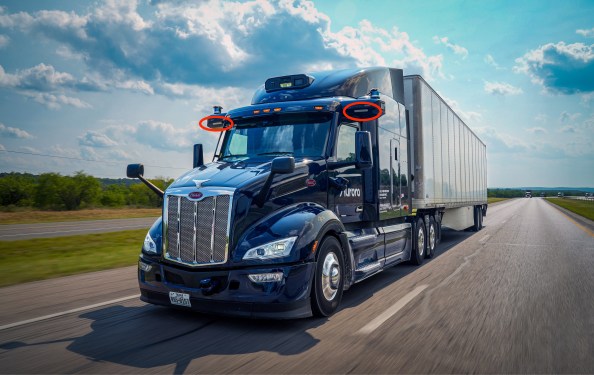Aurora has introduced a new 600-mile driverless route from Fort Worth to El Paso. This is the autonomous vehicle technology company’s second route for its self-driving trucks. The company announced the expansion alongside its third-quarter earnings report. Aurora also reported completing over 100,000 driverless miles on public roads using five self-driving trucks. This marks a significant milestone for the company, which launched its commercial service in May. The company’s next stated goal is to expand to Phoenix by the end of the year.
Aurora’s initial commercial service began with a Dallas-to-Houston route with launch customers Hirschbach Motor Lines and Uber Freight. The new Fort Worth-to-El Paso route is considered long enough to be compelling for carriers. The company cites ongoing staff challenges and the difficulty of completing a ten-hour haul in a single day as reasons for the route’s appeal. Customers on this El Paso route include Hirschbach Motor Lines and Russell Transport.
The company also shared details on its next-generation hardware, which is manufactured by Fabrinet and is being integrated with the Volvo VNL Autonomous trucks. Aurora plans to build hundreds of trucks equipped with this next-generation hardware in 2026. The company states the new hardware is more durable and offers better performance, while also being half the overall cost. The new generation of lidar can detect objects up to 1,000 meters away, which is twice the distance of the current system. Aurora has also improved its sensor cleaning technology, which it says will operate more reliably in harsh weather conditions.
The integration of Aurora’s next-generation hardware with the Volvo VNL Autonomous trucks represents an industry-first partnership. This collaboration highlights the meaningful progress being made toward manufacturing trucks purpose-built for autonomy. This move goes beyond prototypes to create scalable solutions ready to meet the demands of a modern supply chain.
This next-generation hardware will precede a suite of higher-volume hardware that is being jointly developed with Aumovio, formerly known as Continental. This hardware is slated for production in 2027. The company plans to build up to tens of thousands of self-driving trucks when its manufacturing partnership with Aumovio begins in 2027.

